The Saturday Read: Islands in time
Inside: Ailing kings, basic facts, lost languages, Teddy boys, Israel, and Putin.
Good morning. Welcome to the Saturday Read. For any first-time readers this is the New Statesman’s weekly guide to the best writing on politics, culture, books, and ideas, sent to NS subscribers and registered readers. This is Harry, along with Will, Pippa, and George Monaghan.
Is Biden toast? Focus only on higher quality pollsters and he is running Trump closer than you might expect. Among those with the best track records he is even tied. Jill Filipovic took a look at the voters he has lost for us this week. The data is also here. Since 2020 he has alienated Black voters, Hispanic voters, young voters, poorer voters, independent voters and moderate voters. Apart from that he’s doing well.
Talking of polls, we were hoping you could settle a debate: which generation reads the Saturday Read the most? (If you’re in the Greatest Generation, pre-1928, let us know.)
Click to read online if this email cuts off. If you already subscribe to the NS, thank you. If you don’t yet and these pieces intrigue, perhaps you’d like to try a subscription.
1—“Pain was always the dominant theme in the King’s life.”
Charles III has cancer. Never as popular as his mother, or Princess Diana, Charles has always been an elusive figure. So much – too much – is known about his private life, while his public statements, which are the displacement of his obsessions, failures and prejudices into political acts, have usually been ignored. This is back to front, and the British won’t realise that until Charles is safely entombed at Windsor. WL
The British public, who rejected Charles in polls for much of his agonised tenure as the Prince of Wales or devoured newspapers that mocked and kicked at him, have rarely accepted the reality of his suffering. “The essence of British monarchy”, the novelist John Buchan wrote in 1935, “is that the king, while lifted far above the nation, should also be the nation itself in its most characteristic form.” Suffering was not part of Britain’s self-image for most of Charles’s life. Is it now? Elderly, unthreatening, assailed by pain, facing a disease that millions of his subjects have endured or succumbed to, during a bleak era; this may be the closest the King comes to representing the “characteristic form” of the nation.
2—“Joe Biden is the hologram president.”
How did it come to this? The Democratic presidential candidate who stands between Donald Trump and the White House is, in the words of the special counsel appointed to investigate his handling of classified documents, an “elderly man with a poor memory” who could not remember the years in which he was vice-president or when his son Beau died. Lee Siegel despairs. Nine months to go. HL
The press conference Biden hastily arranged to refute this startling new picture of him only made matters worse. A reporter told him, “many American people have been watching and they have expressed concern about your age.” Biden snapped back, shouting, “That is your judgment. That is your judgment. That is not the judgment of the press!” clearly intending to say “people” instead of “press.” When the assembled reporters began shouting their questions to him simultaneously, he froze for a minute, with something like fear in his eyes, unsure of how to proceed.
3—“Badenoch was attempting to shed light based on evidence, not ideology.”
On Wednesday Kemi Badenoch wrote to a parliamentary committee with evidence supporting her position that young people who will grow up to be gay are at risk of being given gender-affirming treatment they do not need or will later regret. The Business Secretary’s words may be controversial, writes Hannah Barnes, but the research supports them. Many MPs seem unaware of the basic facts. PB
What was so striking about the committee hearing back in December was the lack of basic knowledge around gender-questioning young people, and the medical care provided to them on the NHS, by so many members [of parliament]. Caroline Nokes and others were seemingly unaware that referrals to NHS England’s only children gender clinic based at the Tavistock Trust in London has increased dramatically over the last decade and a half; that there had been a shift in demographics of those being referred from predominantly pre-pubescent boys, to adolescent girls; nor that young people with autism were overly represented. As someone who has covered this area of healthcare for five years, this is astonishing. These are basic, well-reported, uncontested facts.
4—“Who runs Labour? The £28bn question the party cannot answer.”
The slowest U-turn in history ended this week as Labour abandoned its £28bn green investment pledge, slashing its commitment to spend by 83 per cent. George Eaton offered an inside account of the decision in our cover story. After a rare apparent split, Keir Starmer and Rachel Reeves put on a united front, but it is the latter who some suggest emerged strongest from this week.
The pledge was always under pressure from Labour’s avid commitment to its fiscal rules, as Freddie Hayward forewarned in Morning Call months ago. Andrew Marr examined the way Peter Mandelson, perennially present in the party’s politics, affected the decision. HL
Labour history is replete with leaders clashing with their chancellors or shadow chancellors. After Tony Blair refused to resign as prime minister in 2004, Gordon Brown told him: “There is nothing that you could ever say to me now that I could ever believe.” The relationship between Ed Miliband and Ed Balls was less toxic but tense: Balls often doubted that Miliband could win a general election and believed Labour had become too anti-business. Tensions even intensified between Jeremy Corbyn and John McDonnell as their political project crumbled.
5—“The Israel lobby is as powerful as ever.”
John Mearsheimer – the most influential realist foreign policy thinker of his generation, who critics have cast as too forgiving of Vladimir Putin – spoke with Gavin. The West is mishandling both Russia’s revanchist leader and the Houthis, he argues, and operating under an ongoing delusion about what military force can do. Mearsheimer also reflected on his controversial 2007 book, The Israel Lobby. GM
Putin has made it clear that he does not intend to conquer all of Ukraine, and he has never indicated that he was interested in conquering any other country in eastern Europe, much less western Europe. He also doesn’t have the military capability to conquer Eastern Europe – the Russian army is not the second coming of the Wehrmacht. Even though in Ukraine the balance of power has shifted in Russia’s favour since 2022 the Russians are having a tough time rolling the Ukrainians back. The idea that Russia is going to conquer more territory makes no sense.
From tracking data to working with your supply chain, businesses can make small steps to big carbon reductions.
With technology already reshaping the ways we work, futurists such as Tracey Follows are exploring how these changes might impact you and your employees in exciting new ways.
Read our latest article in collaboration with Virgin Media O2 Business on how to make faster progress on sustainability in 2024.
6—“Clothing was a serious business, and could have consequences.”
Reading Jon Savage’s delve into the world of the Teddy boys is an enjoyable reminder that British teenagers used to divide into violent, stylish subcultures. Not just Teddy boys – punks, skinheads, mods, rockabillies too. It’s weird to think they all grew up and became accountants and solicitors. WL
The Teds persisted as a rump throughout the Sixties and had a revival in the Seventies, with leading pop stars revisiting Fifties styles in songs such as Wizzard’s “See My Baby Jive” and films such as That’ll Be the Day. This increased visibility led the Ted revivalists into conflict with the newly emergent punks, whom they hated for appropriating elements of their precious costume and despised for their effeminacy and weirdness: epithets that had been thrown at the original Teddy boys 20 years earlier.
7—“Strongest of all is Hardy’s empathy with women’s desires.”
Lyndall Gordon reviews a new Thomas Hardy biography, which tells the story of the poet’s life through the women he knew. He had an aversion to being touched, at least in his youth, but he also had a unique empathy among the male novelists of his day for female intelligence and desire. The works are beautiful, the wives were miserable. GM
The height of Hardy’s genius lies in these poems, among them “The Going” and “The Voice”, outpourings of grief, memory, remorse and longing. “Woman much missed, how you call to me, call to me”: a ghostly voice comes to him from Emma’s native Cornwall and “those red-veined rocks far West”. Though in life Emma Hardy was estranged from her husband, in death her voice haunts the living, as does a scene from the past: a woman on horseback, “riding high above with bright hair flapping free”. Byrne notes how Hardy catches the way women moved. The rhythm of her gallop revives the headlong freedom and the very heartbeat of Emma as she once had been in “Beeny Cliff”.
8—“I have urged women for over a decade to lean in. Now I am asking people to speak out.”
Sheryl Sandberg visited the House of Lords this month as part of her campaign to prosecute those who committed sex crimes against Israeli women on 7 October. She brought with her witnesses who shared horrific accounts of rape and mutilation by Hamas. Alona Ferber spoke to her after the event. PB
Not long after Hamas attacked Israel on 7 October, US Jewish and Israeli women’s groups wrote a letter to UN Women. There was evidence, they said, that sexual violence had been weaponised in the attack. It took nearly two months for the UN secretary general António Guterres and UN Women to publicly acknowledge the “multiple reports” of rape that day. In the interim, denialism ran rampant online – and arguably the most powerful woman in tech joined the voices calling for recognition. In December, Sandberg addressed attendees at the UN headquarters in New York. “Silence is complicity,” she said.
9—“Where is Mr Johnson now?”
Vladimir Putin gave his first interview with Western media since the 2022 invasion of Ukraine to Tucker Carlson (a fine former magazine writer in another life). Megan Gibson, who spoke to the former Financial Times editor Lionel Barber about how to interview Putin, breaks down the Russian president’s rambling and revisionist detour on his country’s historical claim to Ukraine – which Carlson sycophantically deemed “not boring!” – as well as his somewhat surprising comments on the West. PB
As Lionel Barber, the former editor of the Financial Times who interviewed Putin in 2019 – the last Westerner to do so before Carlson – told me ahead of the interview, Putin is “a master of destabilisation”, a skill he makes sure to wield against journalists. Was Carlson destabilised? Tough to say; Carlson, who long ago perfected his on-air expression of squinty-eyed disbelief, often appeared simply confused by Putin’s looping responses.
10—“If the Cold War wasn’t won on the quads of Cambridge, it was fought there.”
The violent upheavals of 1970s America helped forge the greatest historian of our time, claims Madoc Cairns. Madoc’s claims are always written in words – near 5,000 of them – worth reading. HL
It was the summer of 1953, on a small island at the edge of the world, and JGA Pocock was hunting ghosts. Pocock, who died in December last year at the age of 99, spent his life travelling between England, New Zealand and the United States, where he built his career as an intellectual historian. In 1953 he was an ocean away from all three: on Sicily following his father, the classicist LG Pocock, as he listened for the voices of the dead…
History, as he [Pocock] would practice it, involves “effecting re-entry into the linguistic universe of the past”: deciphering the conceptual vocabulary through which writers made sense of their world. In so doing, we “learn how to read” lost languages, entering into “past-relationships” with those who spoke them; and this is less like a science, Pocock argued, than a conversation. We write history from within it, one context encountering another, voyages made between islands in time.
Will’s Best of the Rest
FT: David Lammy – Labour could unilaterally recognise a Palestinian state.
Bloomberg: Americans are taking over English football.
Telegraph: Forty Bibby Stockholm asylum seekers are converting to Christianity. I believe every single one of them.
Kara Swisher: It took big tech 30 years to obliterate the media. Read this.
Patrick Radden Keefe: A teen’s fatal plunge into the London underworld. The magazine writer of the moment captures the grottiness underneath the glitter.
Yohann Koshy: What the unrest in Leicester revealed about Britain – and Modi’s India.
Rebecca Jennings: Everyone’s a sell-out now.
Helen Andrews: Against HR.
Ukrainian-born Miss Japan relinquishes title over affair with “muscle doctor”. Very hard to blame either of them.
You still don’t understand Saltburn. It’s what happens when you let the middle classes into Oxford?
Is the moon shrinking? Finally a weight-loss plan that works.
Someone found a job for Rory Stewart. Running a camel breeding programme in Oman.
Elsewhere on the NS
Claudia Cockerell reported Alastair Campbell’s comments on Gaza at an event on Monday. Then he publicly denied them. She kept the receipts.
Europe depends on American gas. That could soon mean, Will Dunn notes, the continent is dependent on the caprice of Donald J Trump.
Fix yourself a drink – the Tory Party’s fractured future will have fearsome consequences for us all, argues Lewis Goodall.
Rachel Cunliffe reports from the launch of PopCon, Liz Truss’s latest attempt to reboot her flailing career.
Joni Mitchell has added 20 years to the shelf life of rock stars, says Kate Mossman.
Illiberal means for liberal ends? Sarah Manavis argues for the public tracking of private jets ferrying celebrities, whether Elon Musk or Taylor Swift. Celebrities have too much power and jets emit too much CO₂. I’m unsure where the logic of this argument ends.
Donna Ferguson uncovers a lost manuscript written by the groundbreaking cultural theorist Stuart Hall.
John Gray asks whether a Trump return could be the end of the liberal world order – for real this time.
Lawrence Freedman breaks down the Zelensky vs Zaluzhny conflict in Ukraine.
Netflix’s One Day adaptation is bland, charmless and without chemistry, writes Rachel Cooke. Just what you want from a romcom.
Artist of the week: Tristram Hillier
It always pays to read Michael Prodger on art. This week: England’s quiet surrealist.
The real world is not quite like the one painted by Tristram Hillier. His paintings are soundless, usually unpeopled and eerily still. Whatever the scene – a cluster of buildings, boats on a beach, bare trees by a country lane – he treated it as a still life, in both senses. Nothing moves; each element is placed with extreme care and painted with a crisp-edged meticulousness. As a young artist he had, he said, been buffeted by a “tornado of conflicting influences” but his mature pictures show the evocative quiet that settles when the storm has passed. His are paintings of concentration and contemplation.
And with that…
We are without a sign-off this week. Will is ill and filed his entries above in delirium. But two pieces of financial news captured me. First, will the end of easy money spell the end for Soho House? Is it a WeWork 2.0? One analyst has downgraded their estimate of the company’s stock, which has fallen 60 per cent in 18 months, to… $0.
Meanwhile the remorseless relevance of semiconductors led stock in ARM Holdings – the great British tech success story, which isn’t British-owned – to catapult by more than 50 per cent in a day. ARM is now more than 100 times as valuable as Soho House. A chain of once-cool clubs can’t compete with the power of a computer chip.
For something else entirely, here is a fine lyrical piece on George Gershwin, the jazz great, that I meant to send to you last week. (“Mr Gershwin, music is music.”) And, in case you missed it, we launched a new mid-week ideas newsletter, the Salvo. HL
If today’s pieces intrigued, you could subscribe to the New Statesman. Stay up to date with everything you need: from news and analysis to comment, criticism and essays.
Whether you’re looking for a sharp blog or a finely written feature, the New Statesman has you covered. Have a good week, and catch you next Saturday.








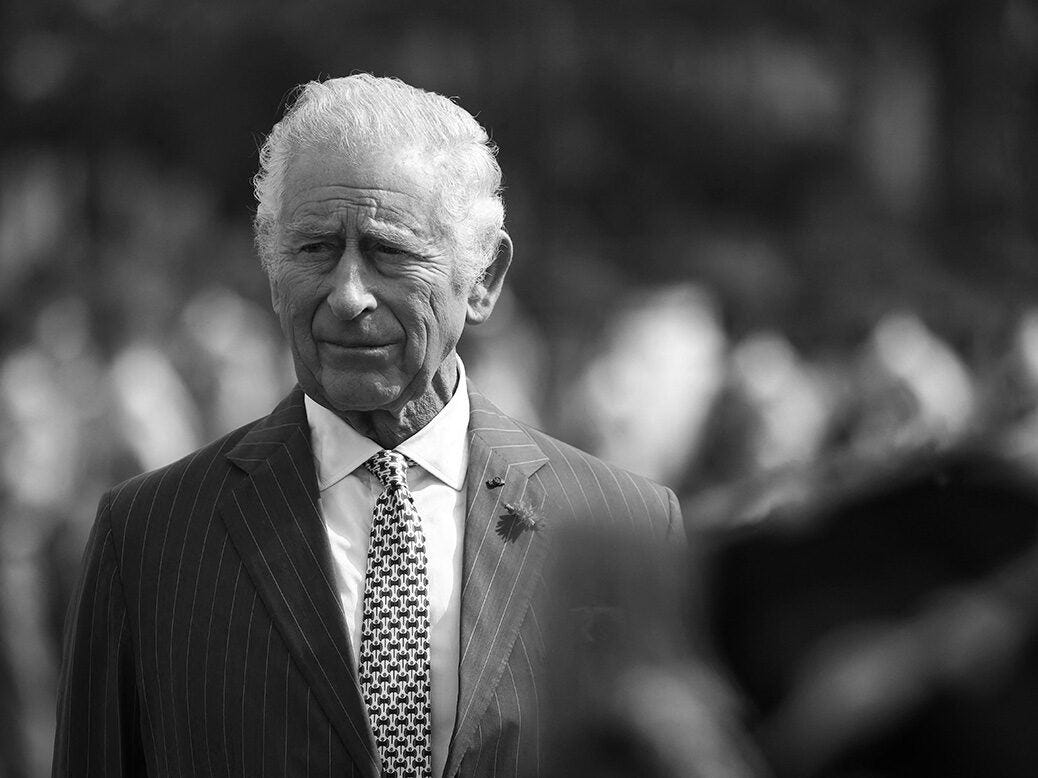
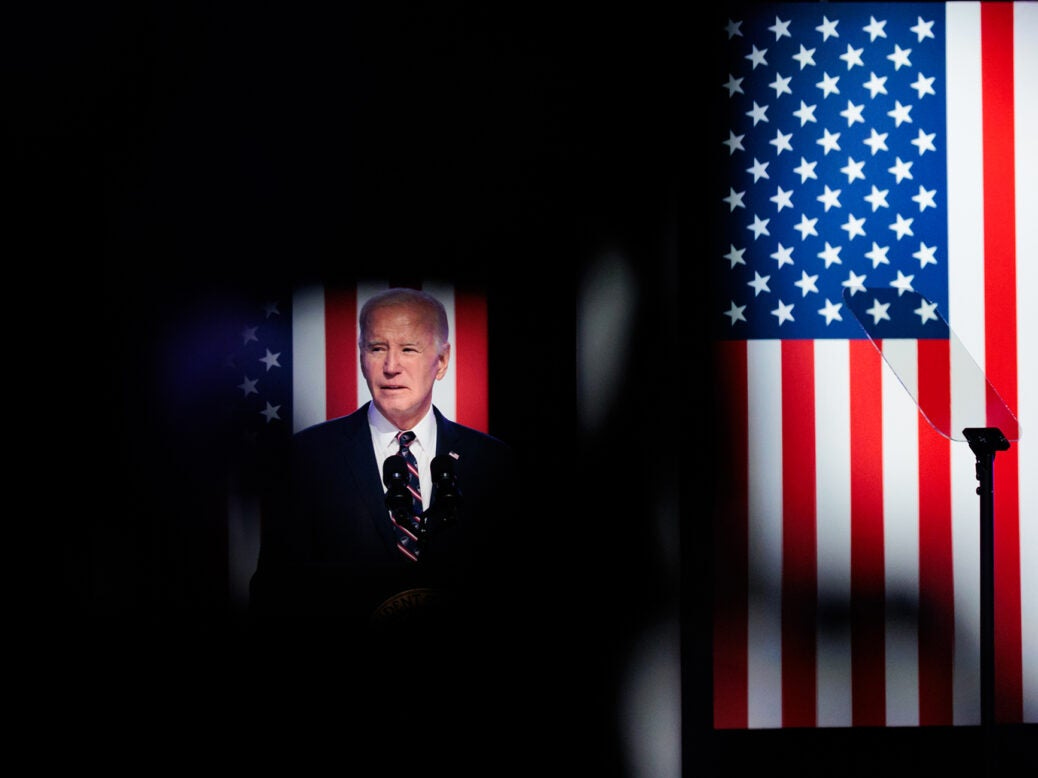

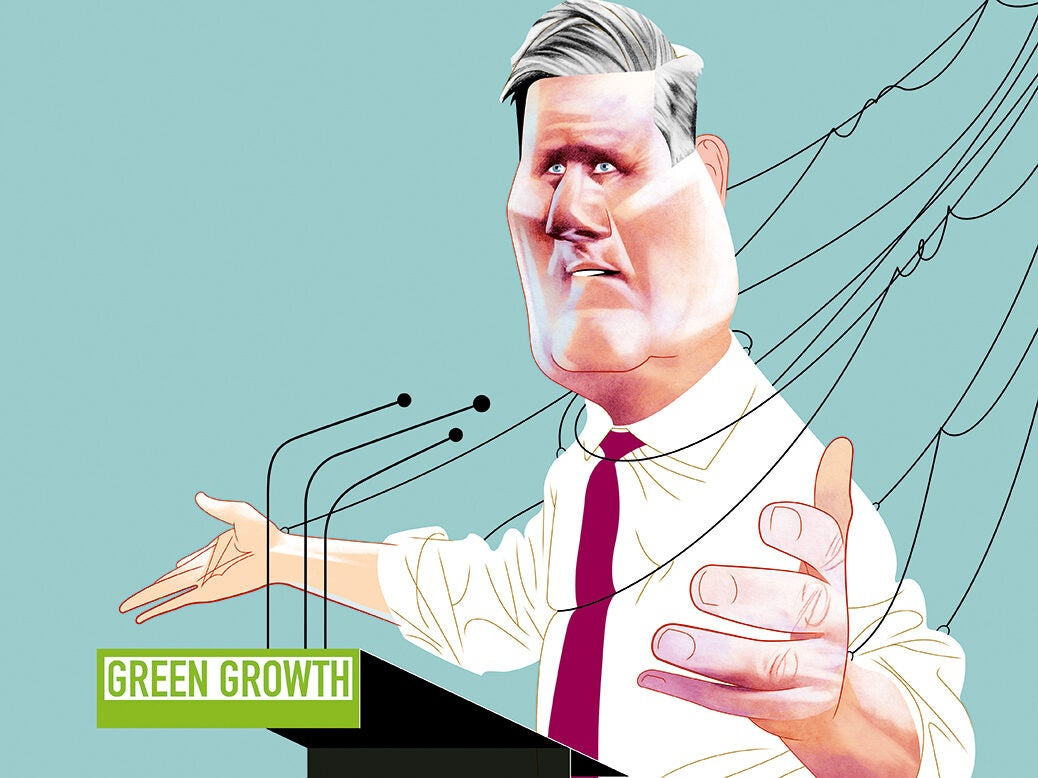
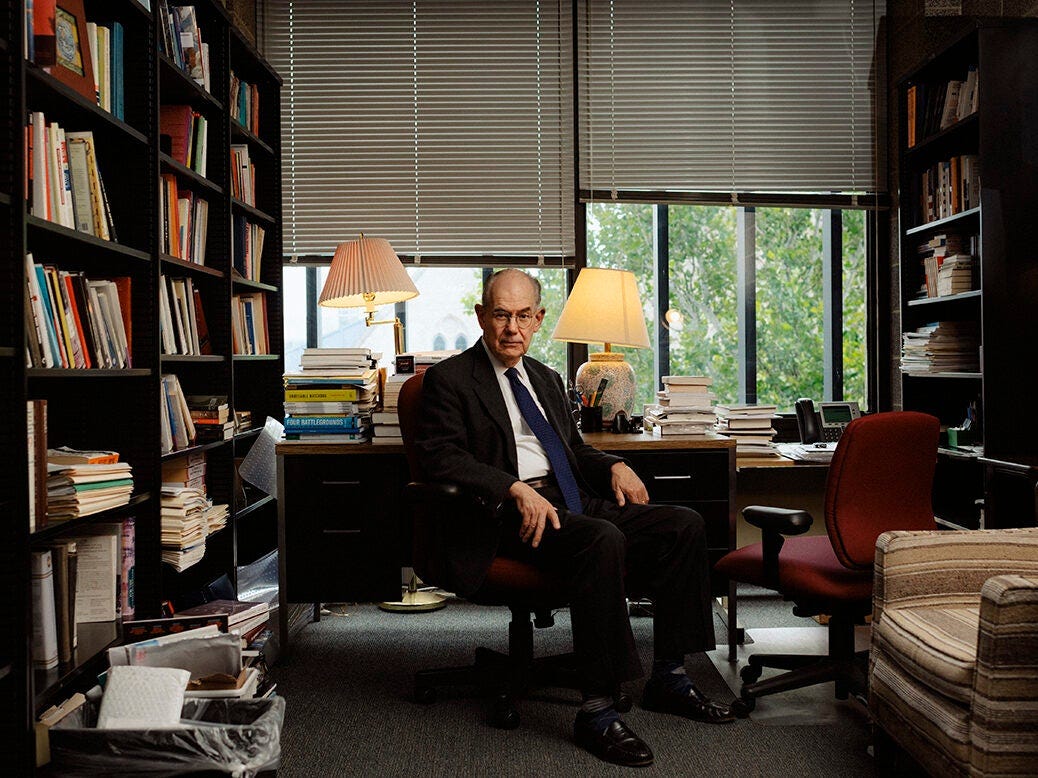

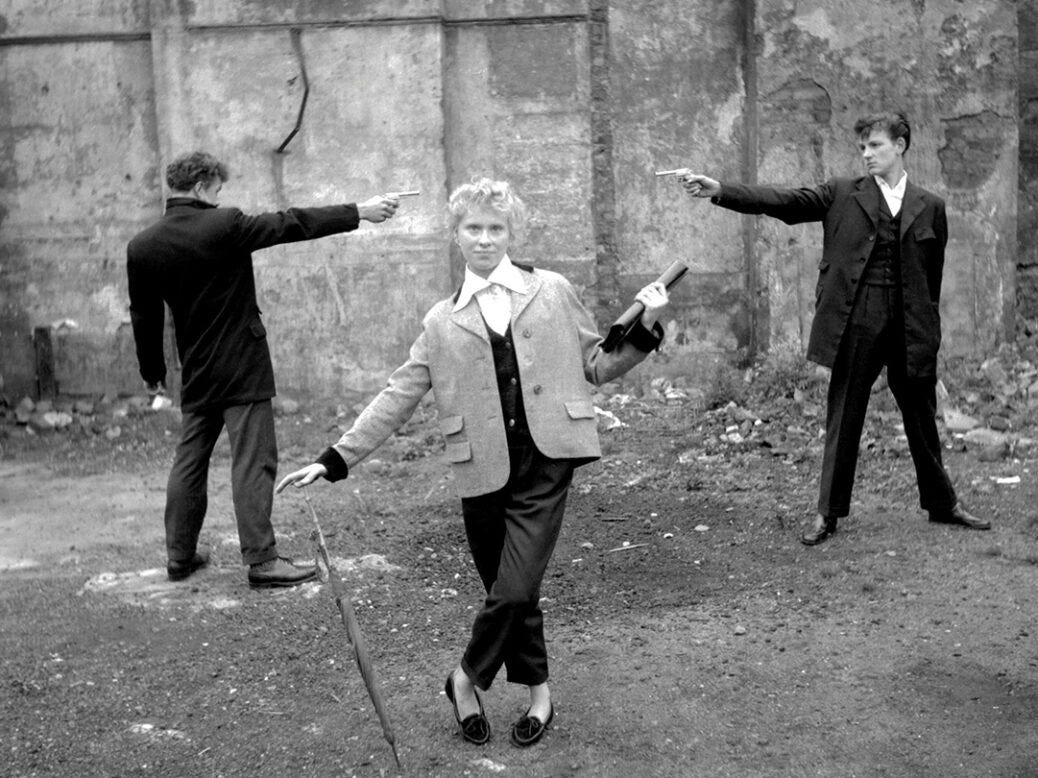
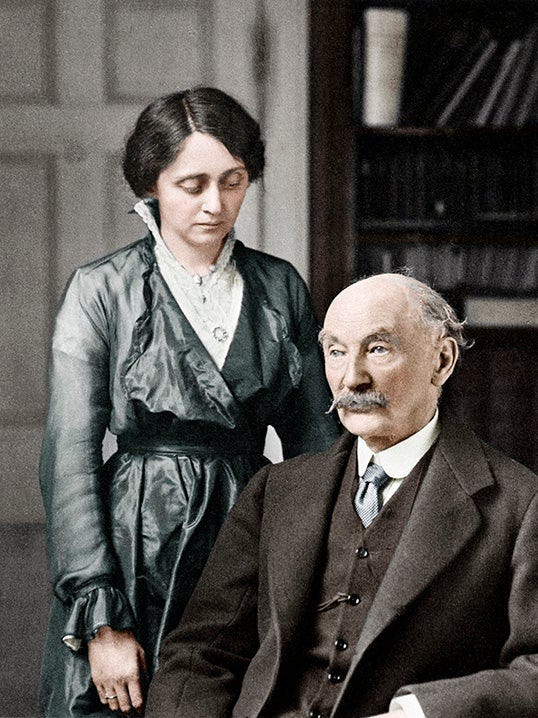

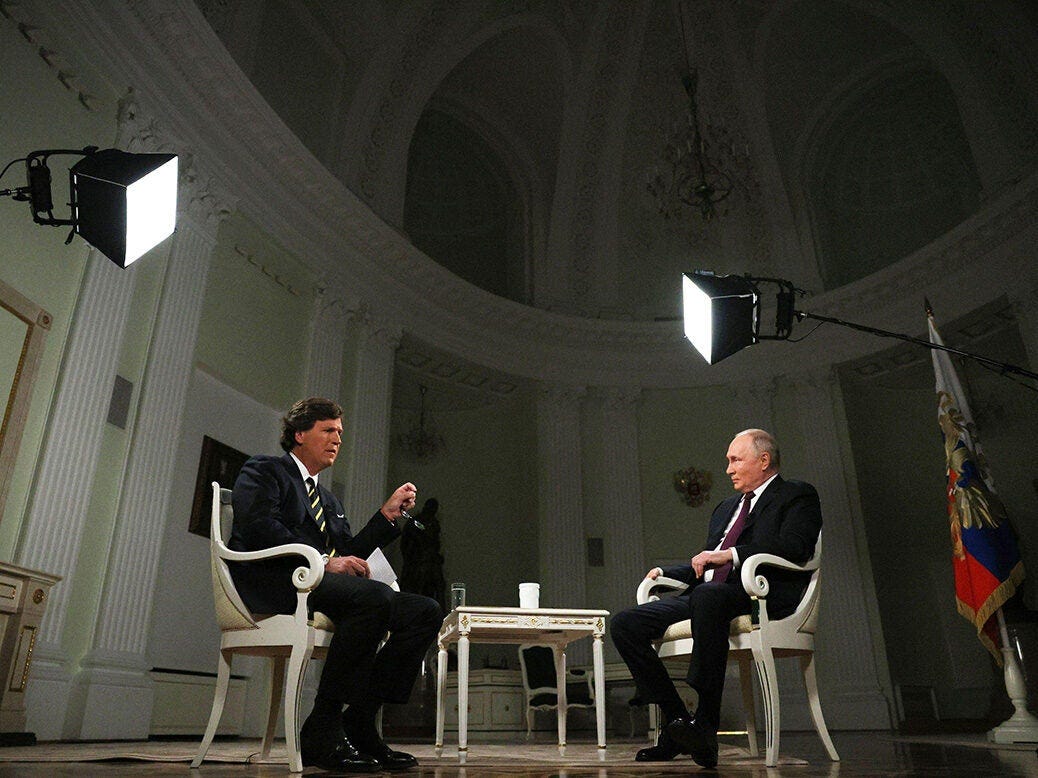

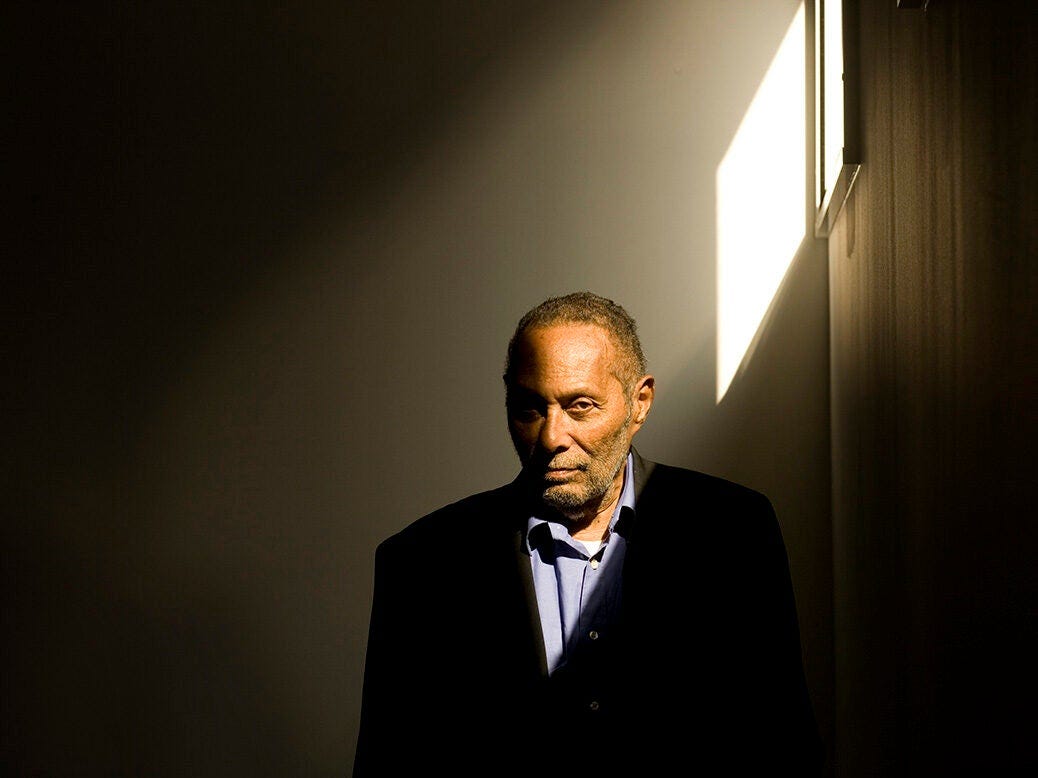

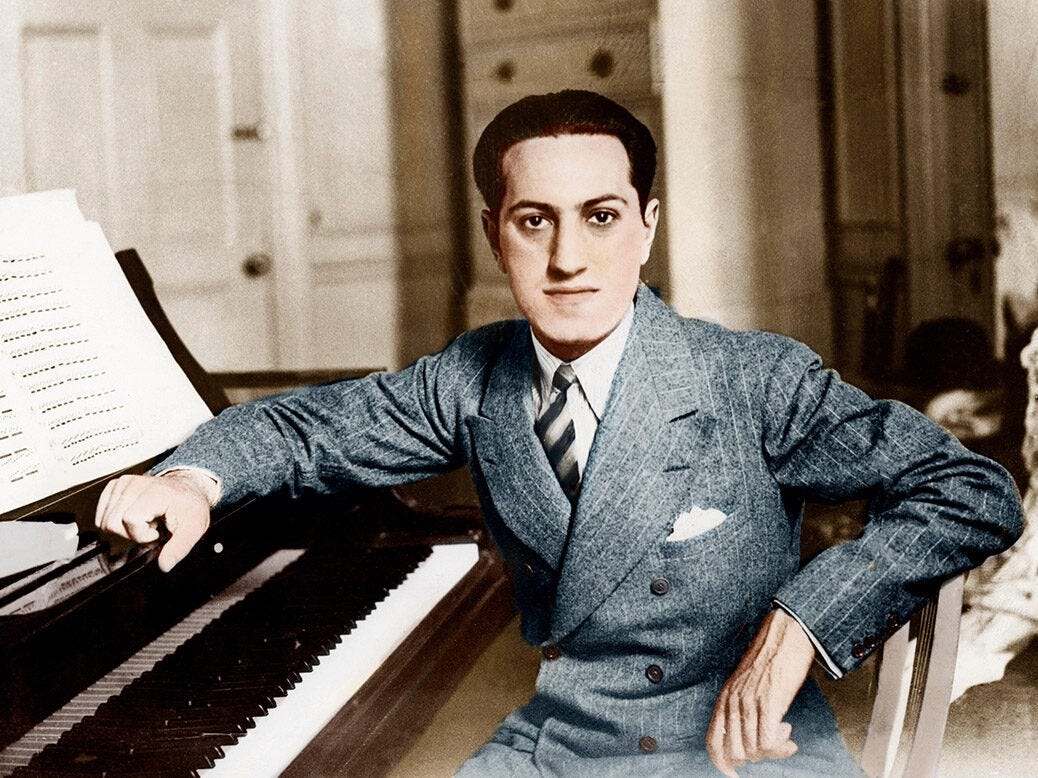

Why do we have to hear what Sheryl Sandberg is doing? Is this of any relevance for the readership? Other than reportage, what purpose does the article about her serve? Is the New Statesman now a newspaper?
The piece here like articles elsewhere on the choice between Biden and Trump tend to ignore what is going on in Gaza as if it doesn't matter at all when it comes to voting for either of these men. Biden without question is complicit with and the enabler of the genocide* that is being committed there, and Trump would be at least as bad and probably worse.
On this question it is like being given a choice between Himmler and Hitler and if I were a US citizen I doubt that I could vote for either. How can one vote for ''the lesser of two evils'' when both are equally bad?
* If what is happenning in Gaza is not genocide then the law needs amending.